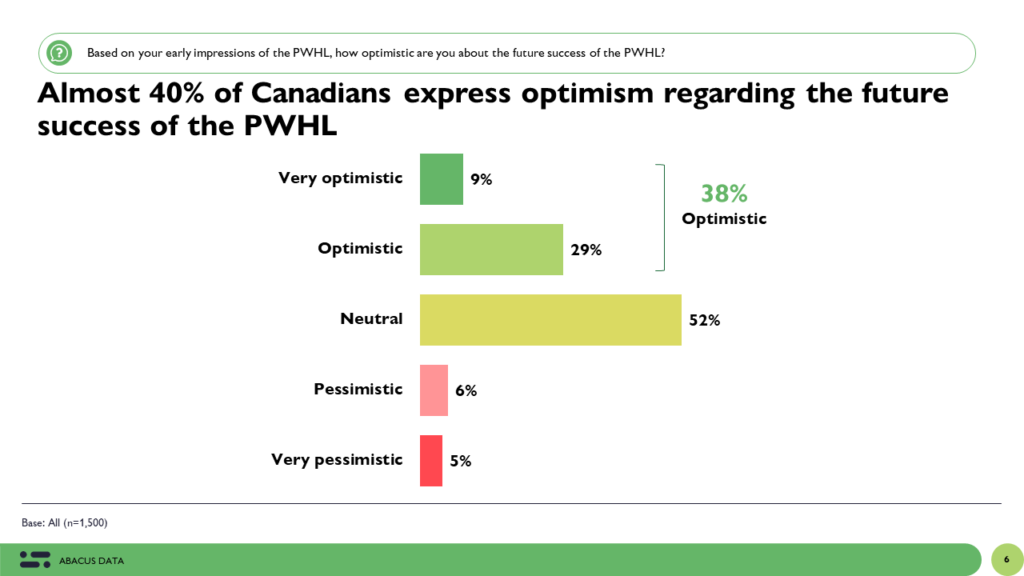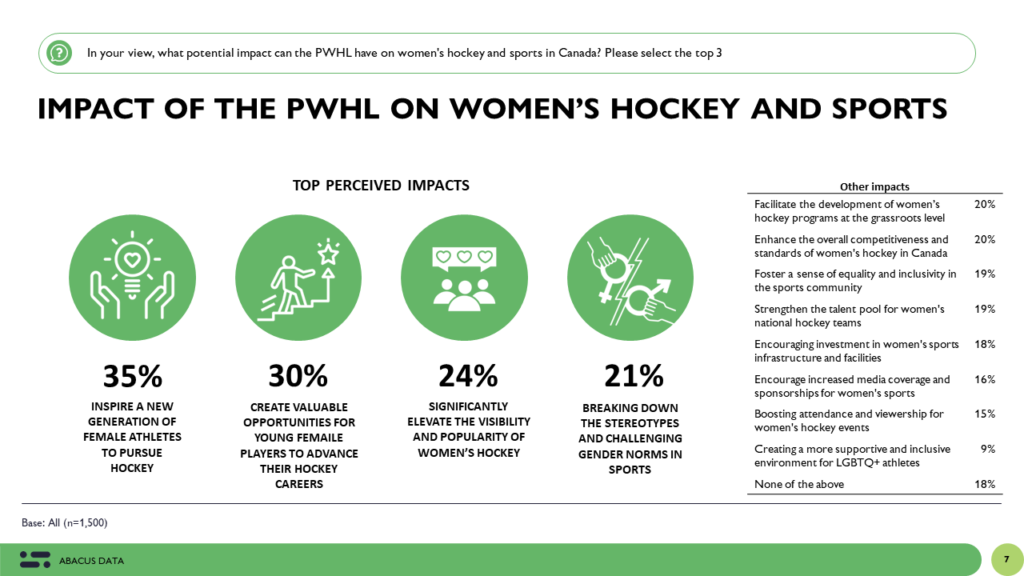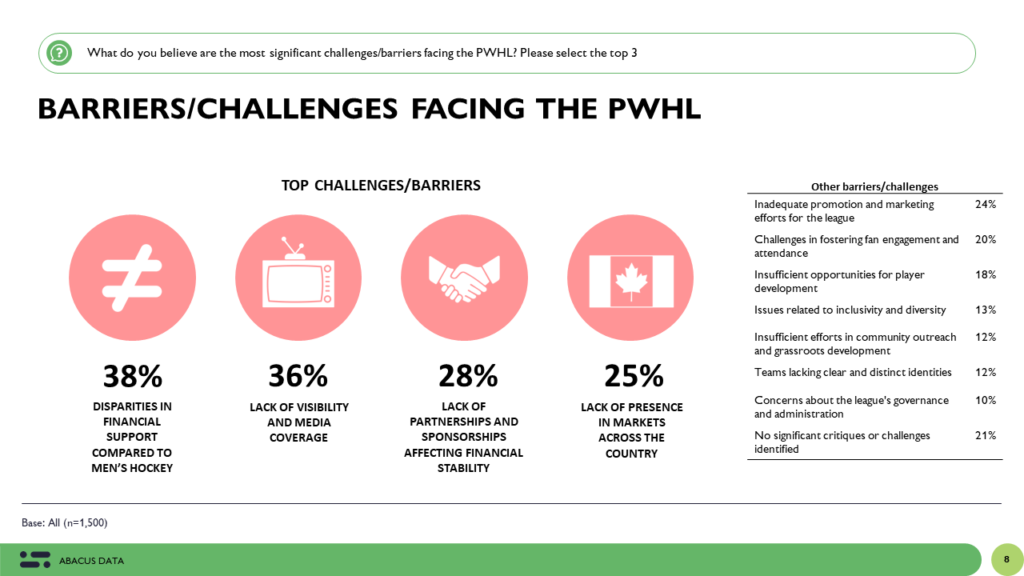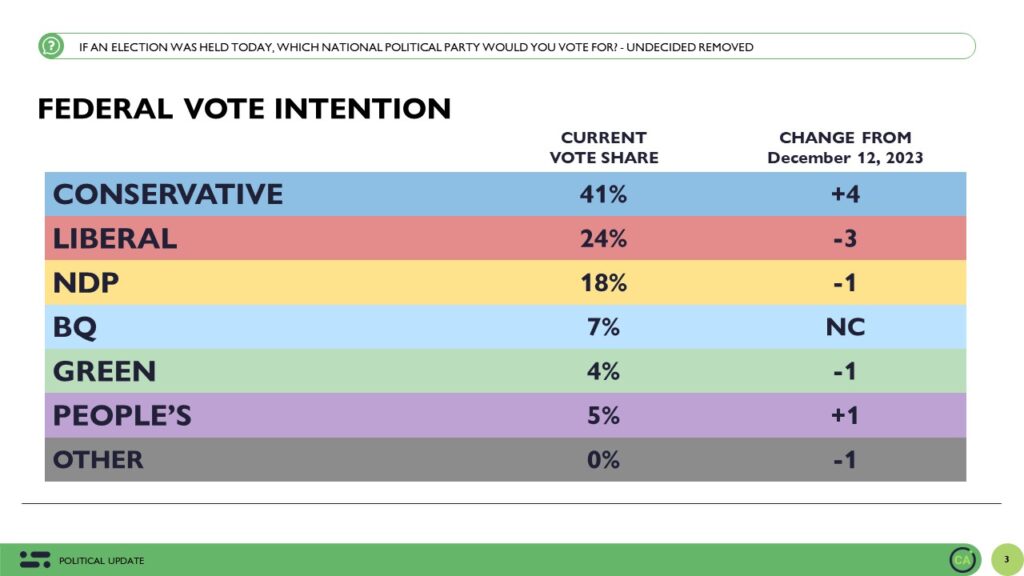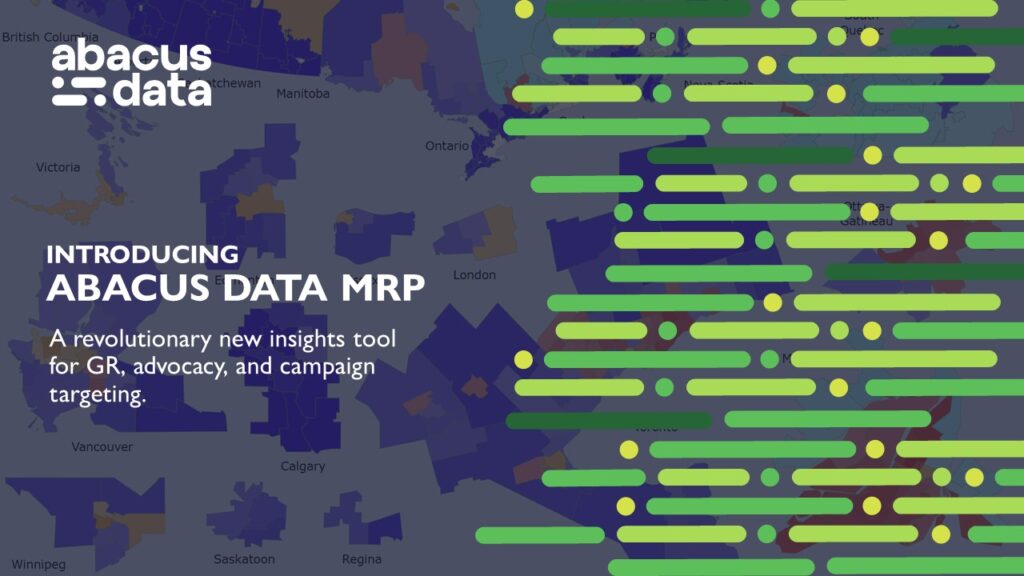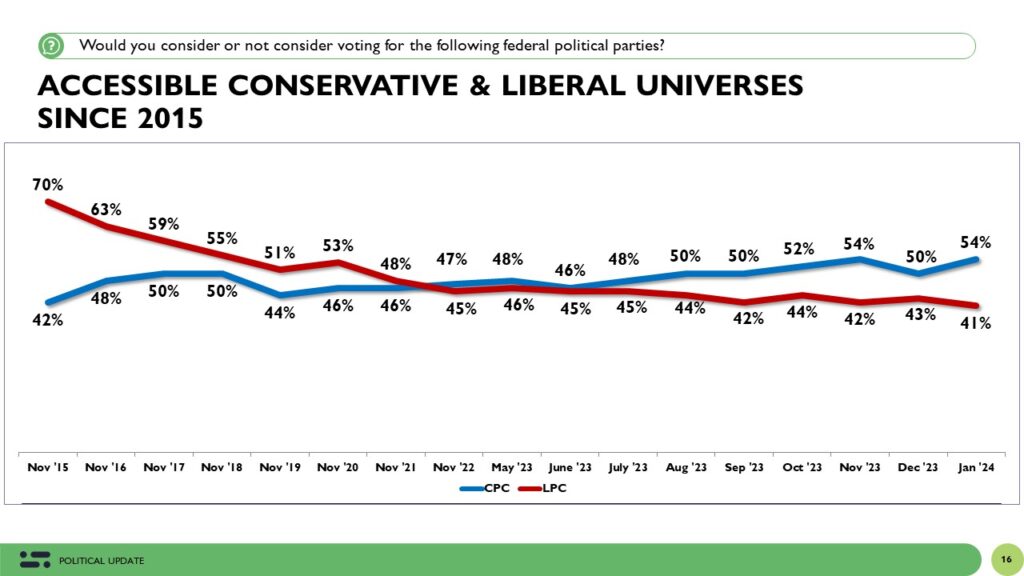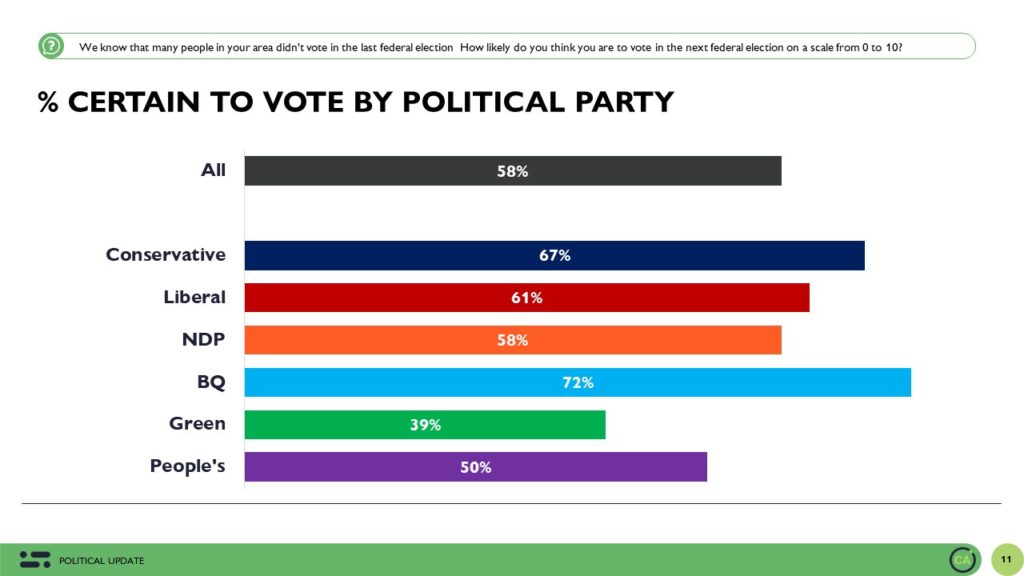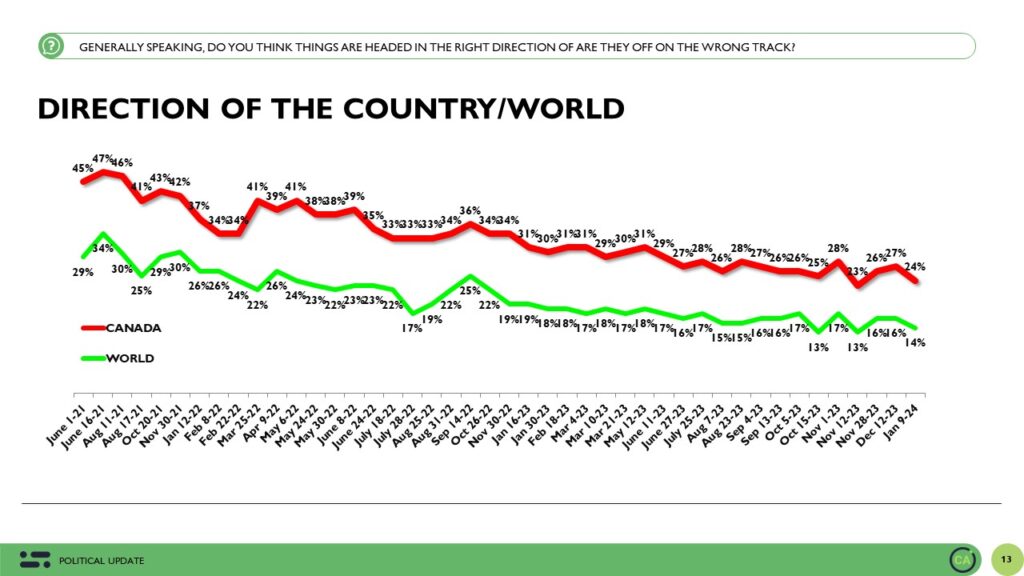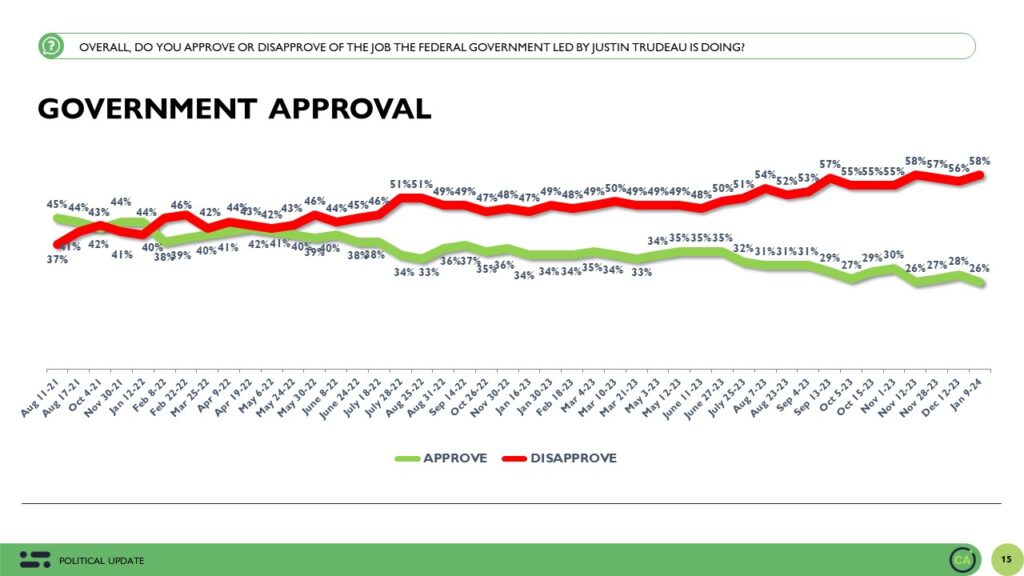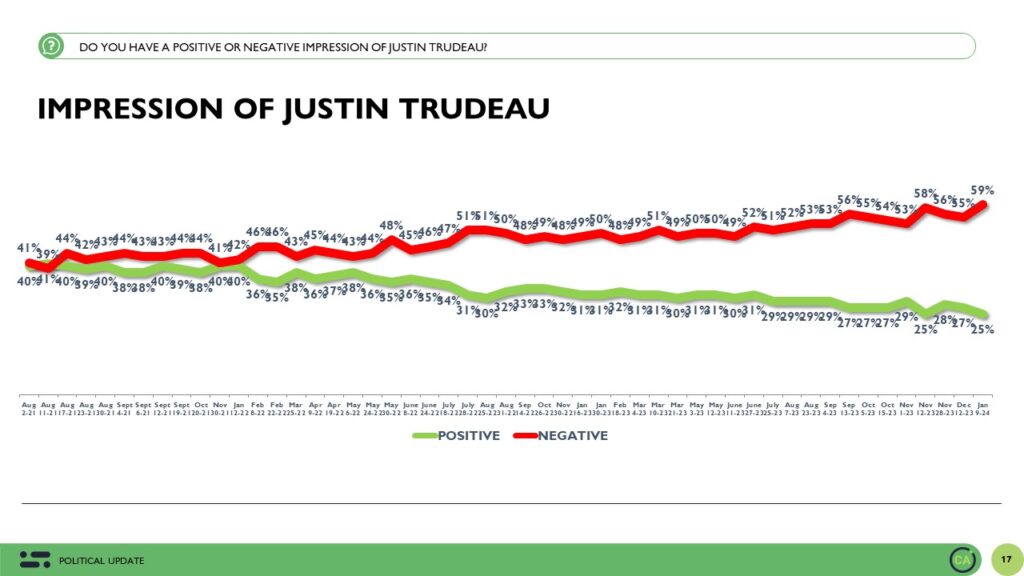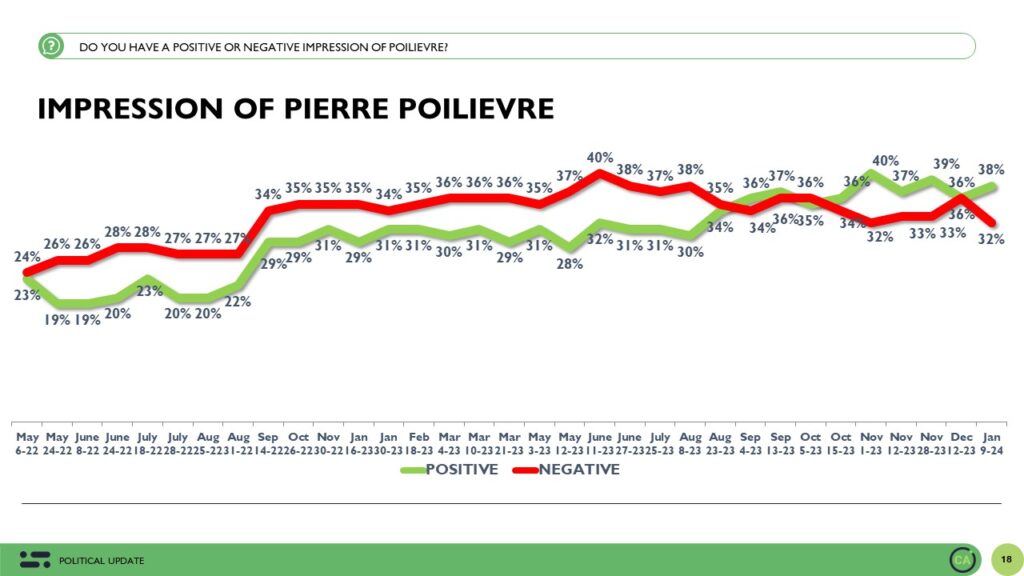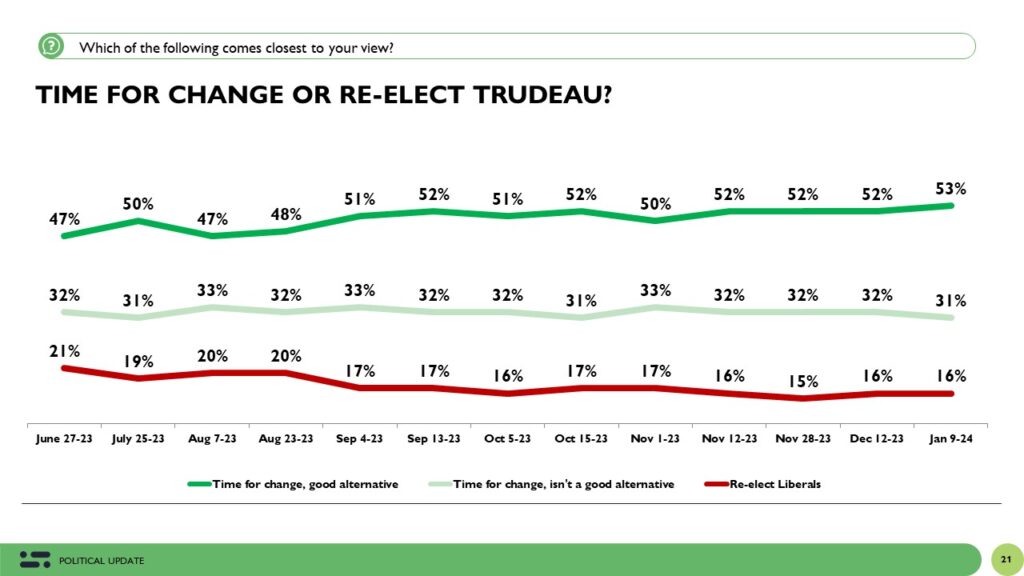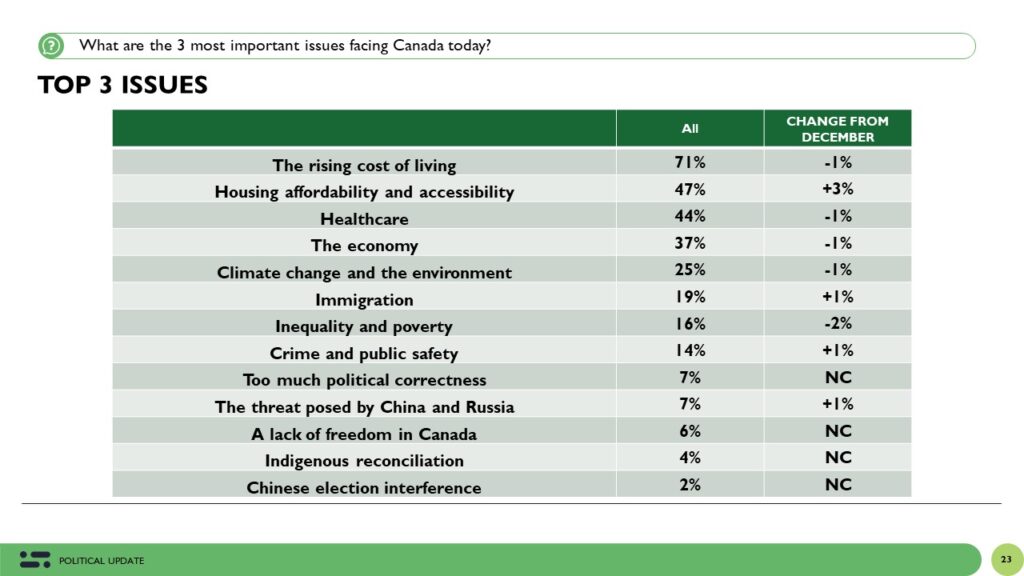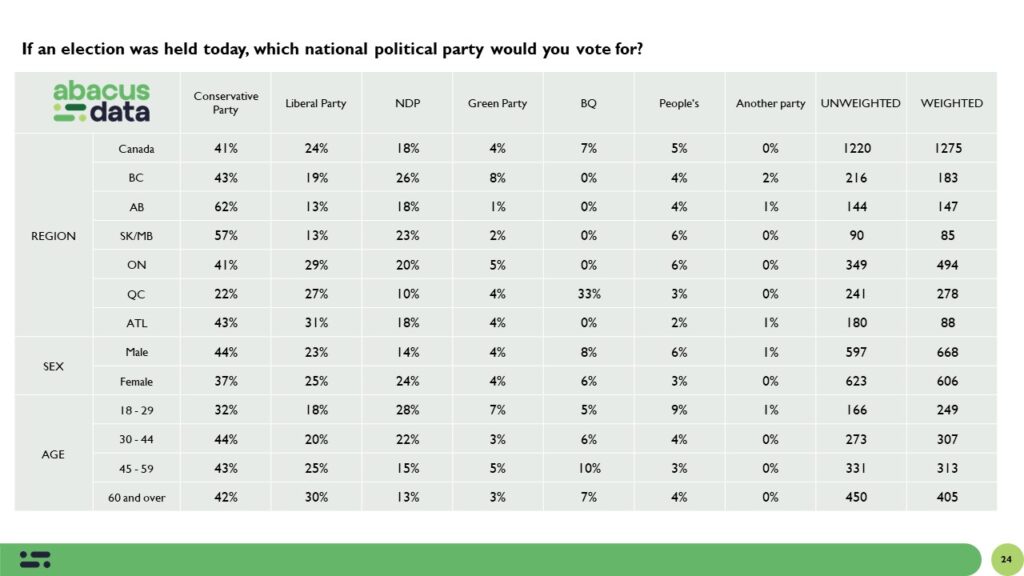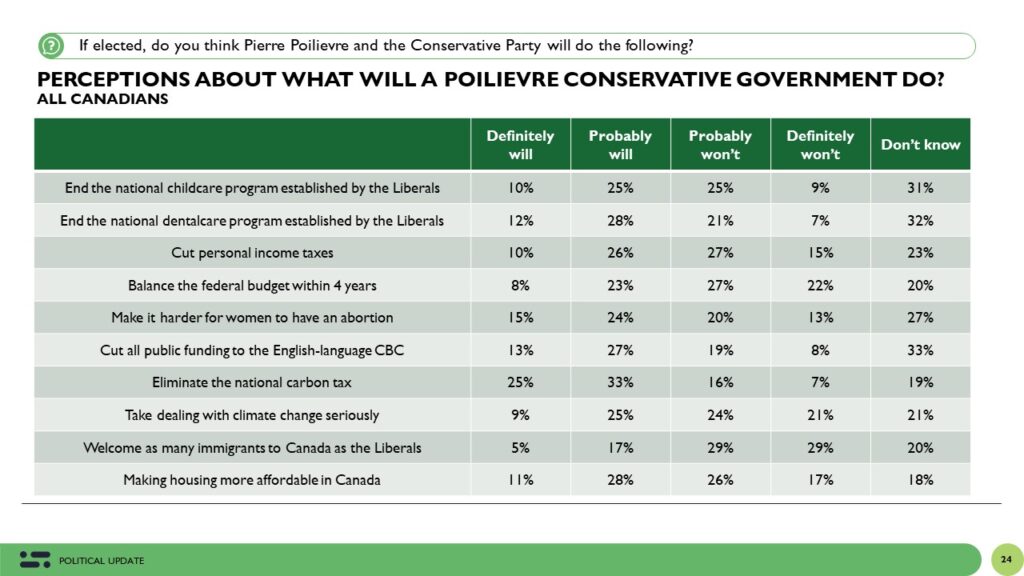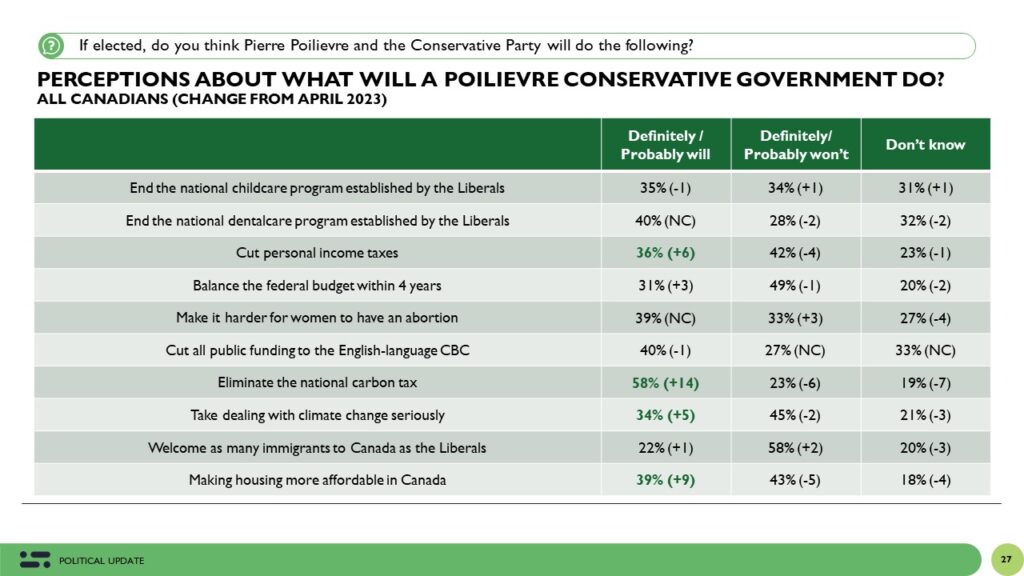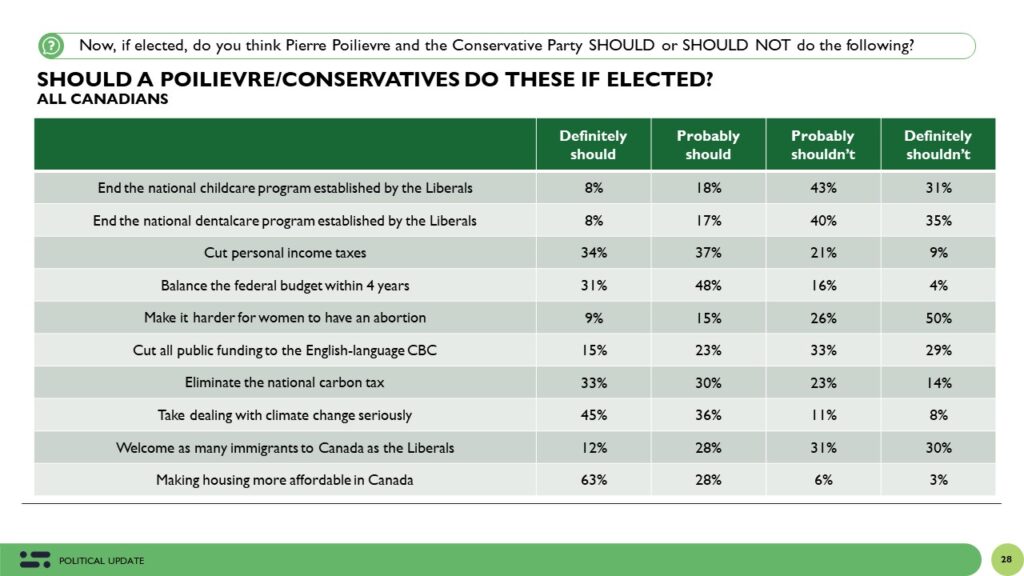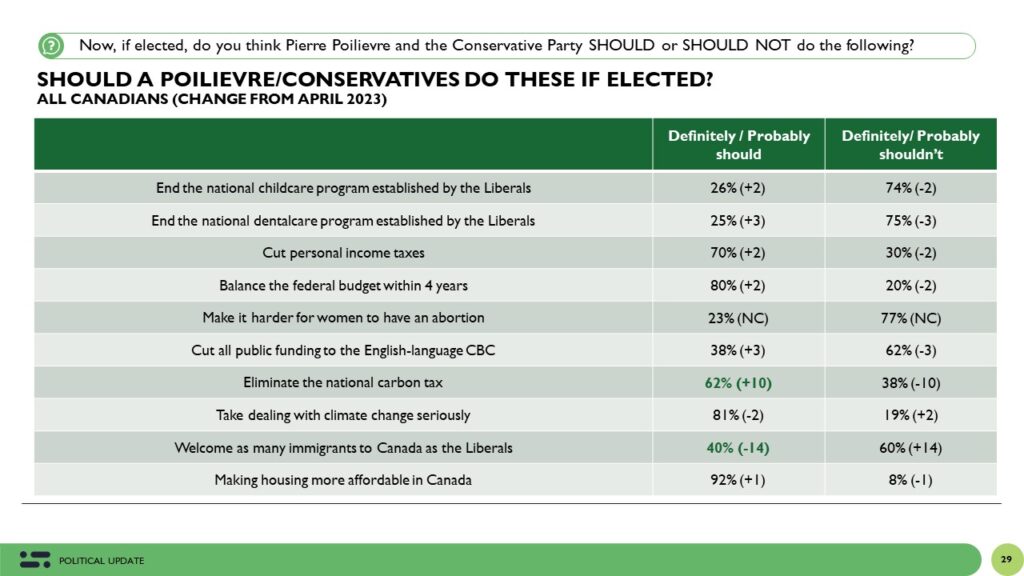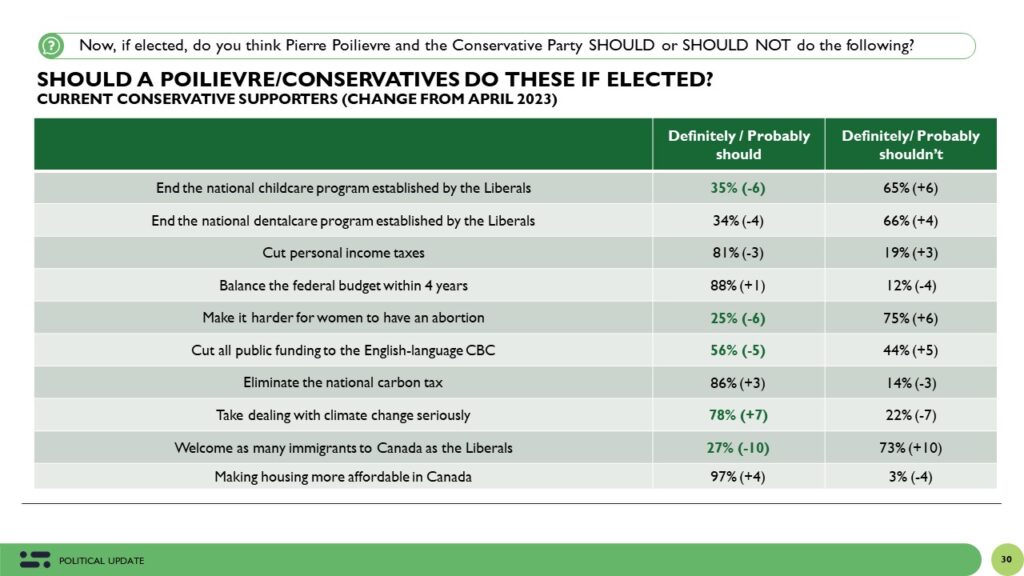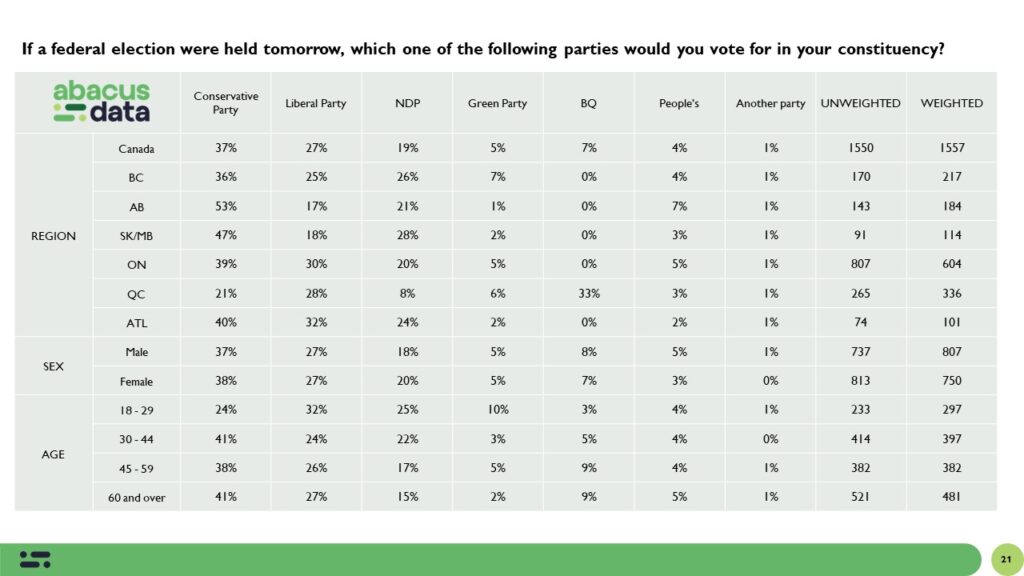Toronto’s Safety Crossroads: Unveiling Concerns, Policing Priorities, and the Push for Adequate Funding
Between January 4 and 9, 2024, Abacus Data conducted a nationwide survey involving 1,500 Torontonians (18+) to gauge their perspectives specific challenges facing Toronto, as well as their perceptions of the importance of police officers in the city and their perception of the city budget. This survey was commissioned by the Toronto Police Association (TPA).
As safety and security concerns intensify in the city, the findings underscore residents’ desire for increased police visibility in their communities, including on TTC. Recognizing the significance of a well-equipped police force, there is minimal support for budget cuts, with widespread backing for increasing the resources available to the police.
Heightened Concerns Regarding Public Safety
Torontonians identify key issues in the city today: housing accessibility (52%), local economy and affordability (41%), homelessness (40%), and crime/public safety (34%). A closer look at crime and safety concerns reveals heightened worry, with a majority expressing fears about gun and gang violence (61%), TTC safety (58%), hate crimes (55%), and auto theft (55%). Examining changes over the past few years, residents believe issues like auto theft (67%), TTC safety (60%), hate crimes (60%), and gun and gang violence (56%) have worsened. These perceptions highlight a collective sense of worsening conditions, emphasizing the need for additional efforts and resources to address and rectify these trends.
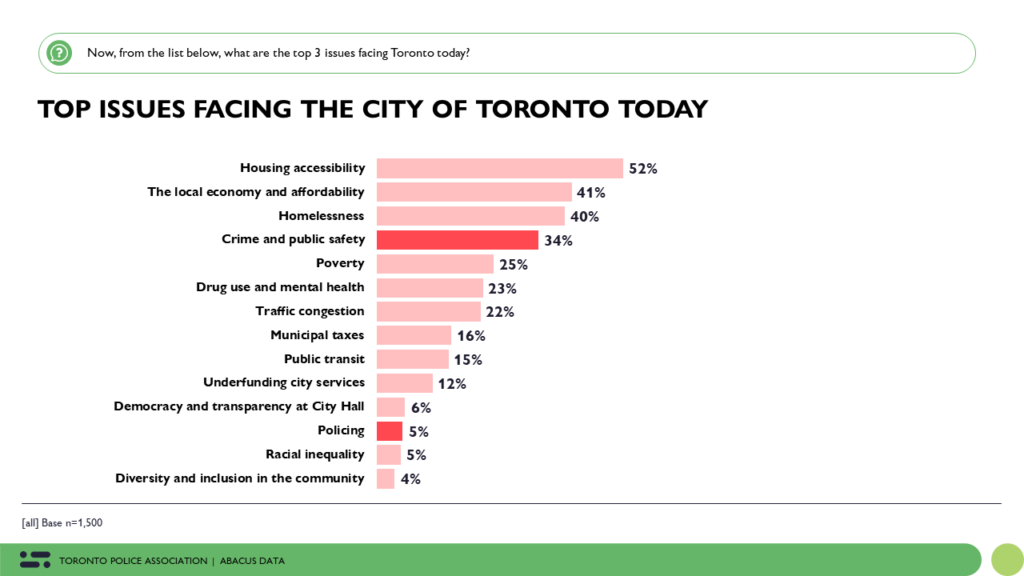
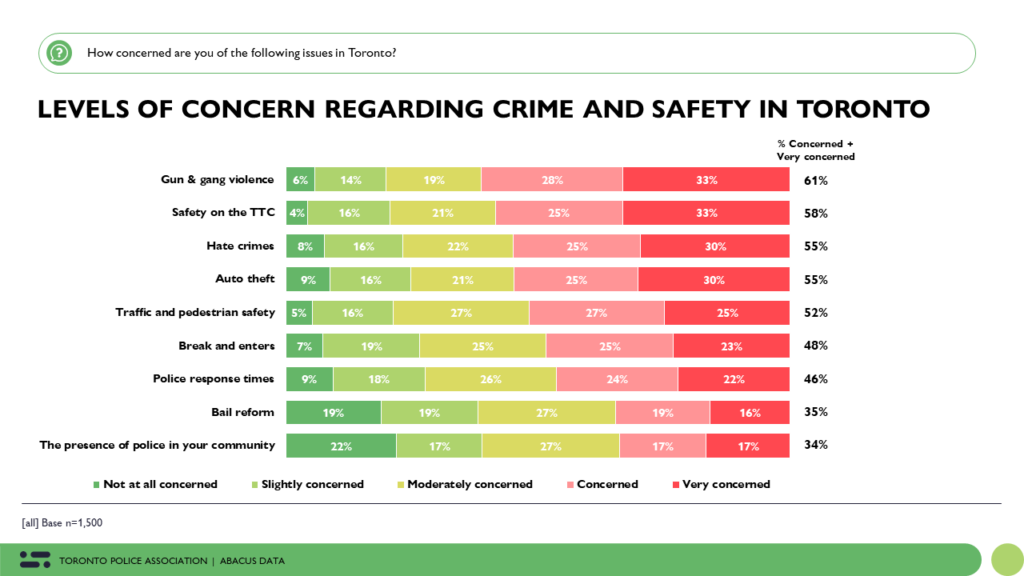
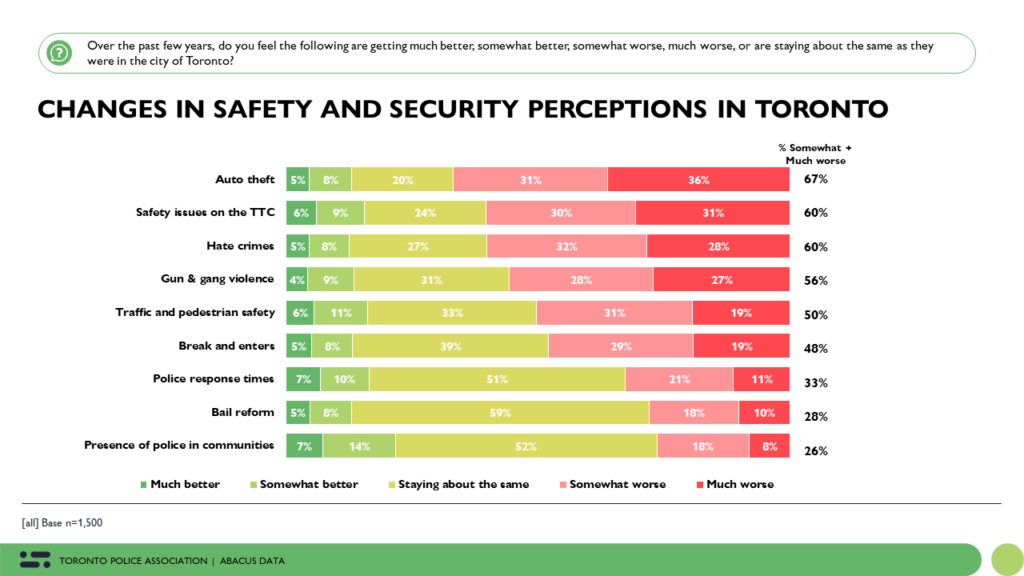
Pervasive Belief in the Importance of Policing
As concerns about crime escalation persist within the city, 60% of residents emphasize the crucial role of policing in overall well-being and quality of life in the city. Furthermore, 67% assert that bolstering front-line officers is essential for improving city safety, highlighting the perceived correlation between effective policing and community welfare.
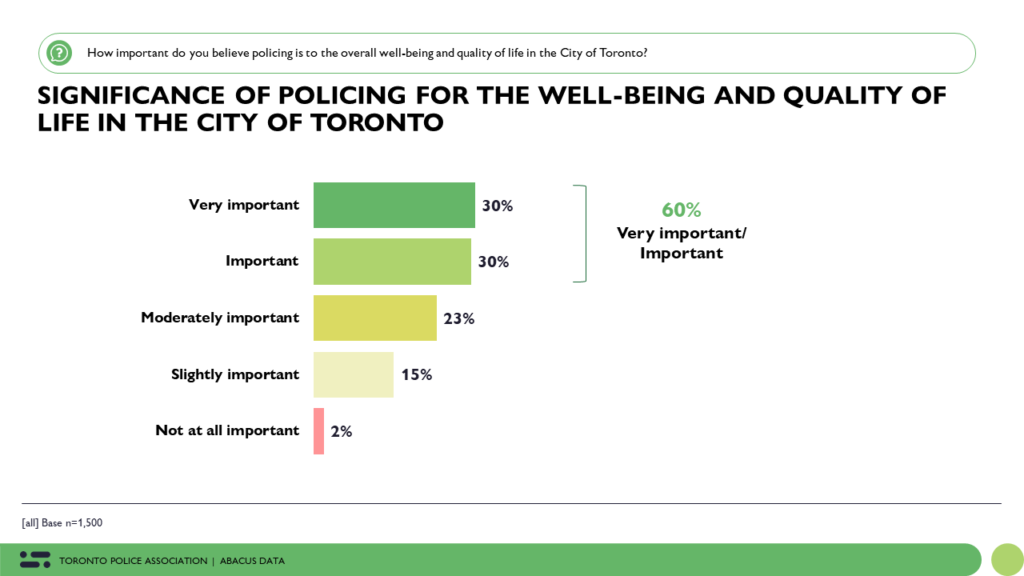
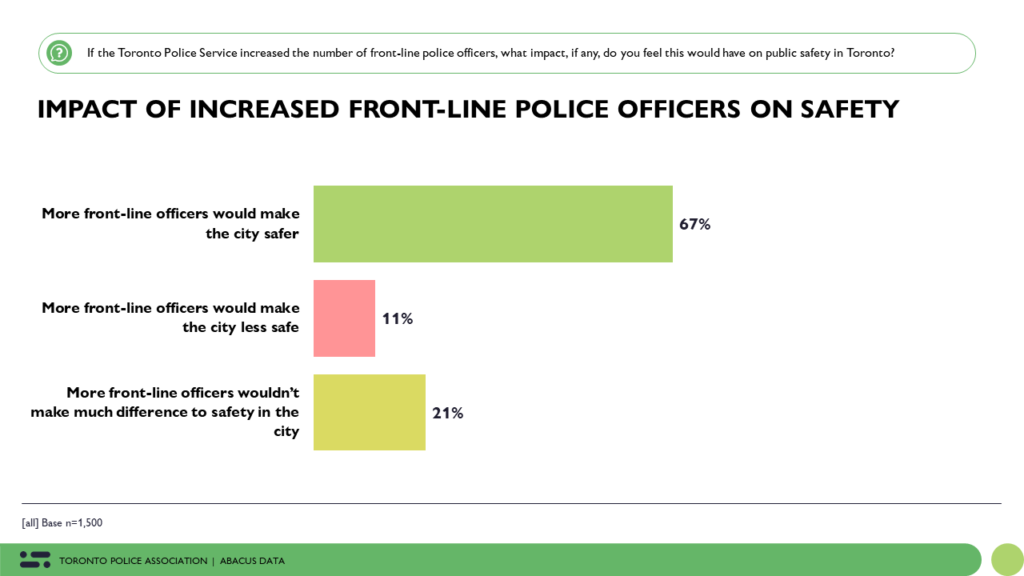
When considering specific actions, collaborative efforts with other agencies (51%), heightened police visibility (50%), and specialized training for community engagement (46%) receive residents’ endorsement. Additionally, 58% express support for an increased police presence in their neighborhoods, indicating confidence in both front-line officers and community-based strategies for heightened safety and security.
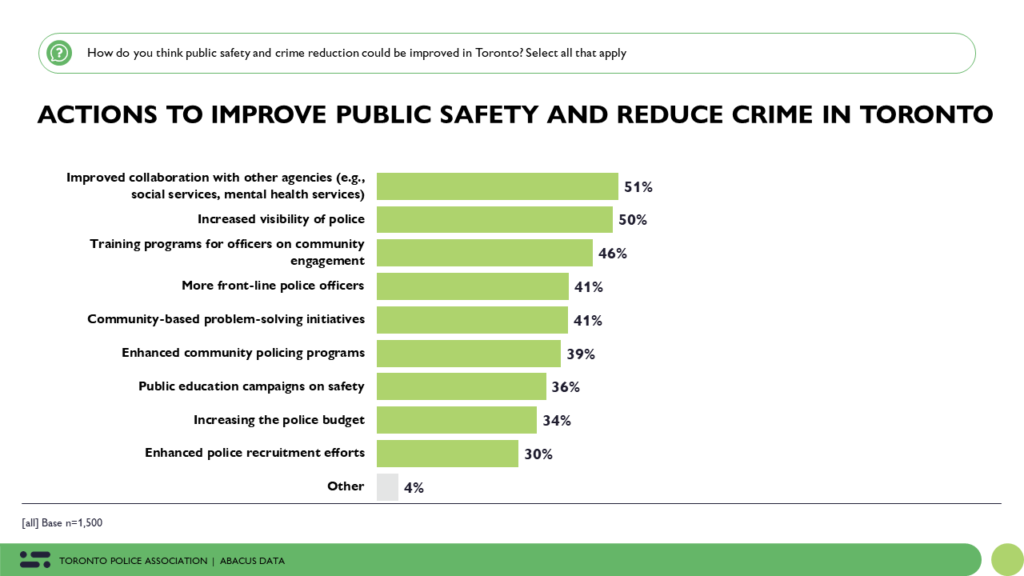
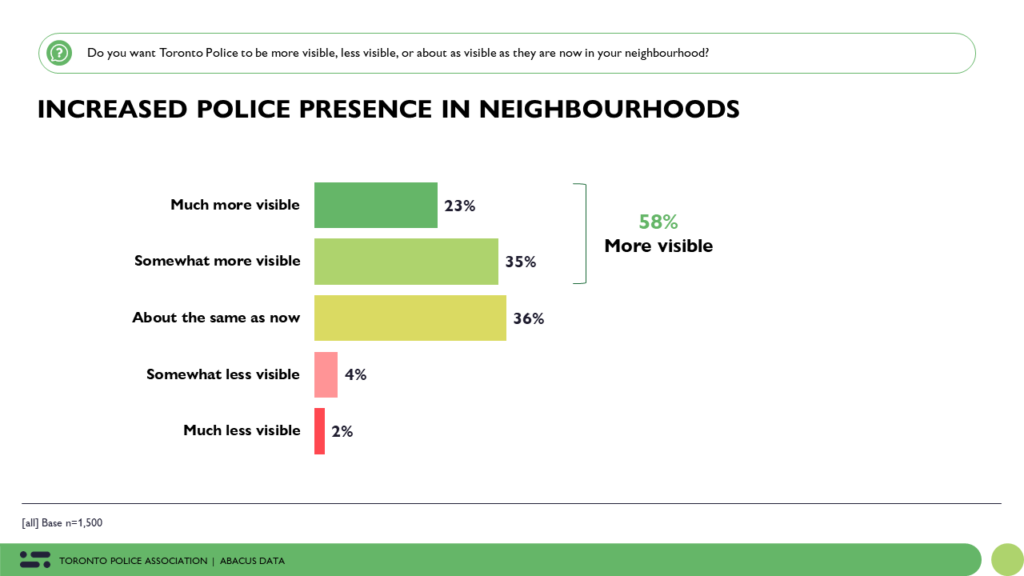
Perceptions of Safety on the TTC
In addition to the desire for increased police presence in neighborhoods, a significant portion of Torontonians (66%) are convinced that an increased police presence would contribute to an enhanced sense of safety and security on the TTC. Residents’ demand for tangible safety measures is evident, with backing for enhancements such as fortifying surveillance cameras (63%), increasing police presence (60%), and expediting response times (51%).
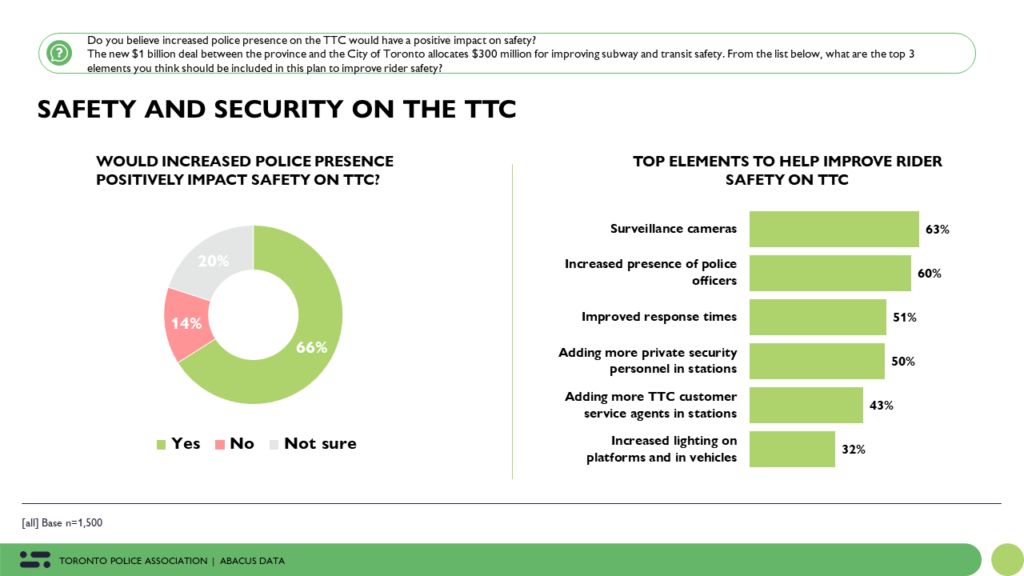
Budget and Funding Perspectives
A notable majority of Toronto residents, comprising 71%, emphasize the importance of maintaining a well-funded and adequately resourced police service. Within this viewpoint, 43% of residents assert that the Toronto Police Service currently lacks sufficient resources, compared to the 33% who believe it is adequately resourced.
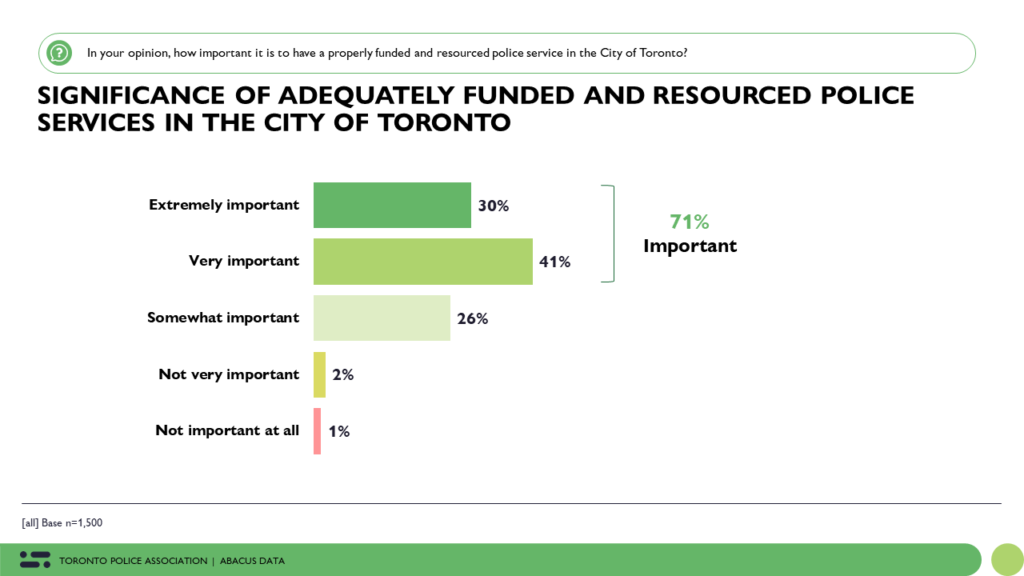
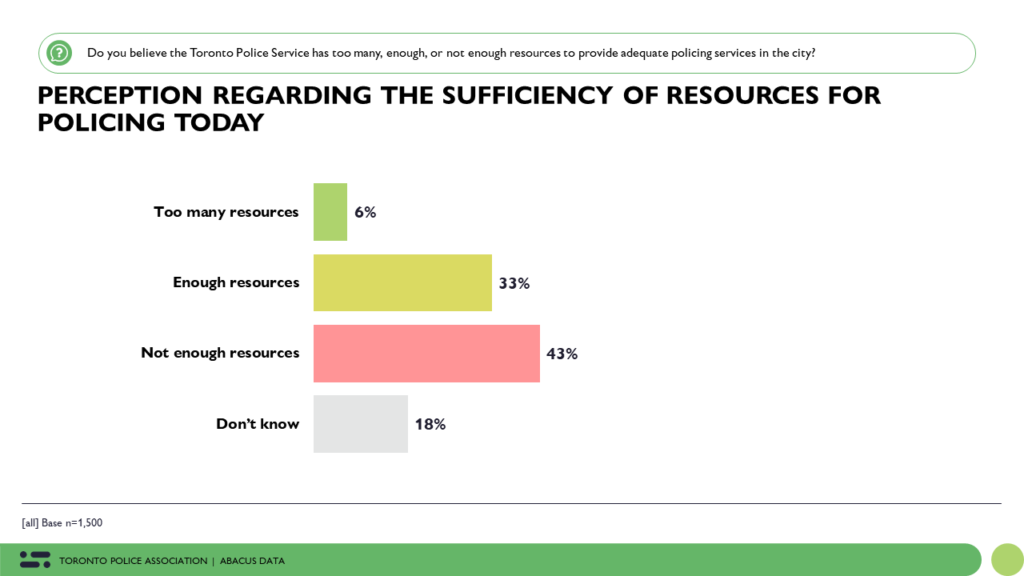
Moreover, 42% of residents support a rise in the police budget, with 34% proposing it stays the same. Additionally, 59% of Torontonians express that a decrease in the police budget would result in the city feeling less secure. These results emphasize diverse viewpoints on police resources, emphasizing the importance of budget modifications to ensure funding plays a pivotal role in maintaining a proactive and efficient police force to address community safety requirements.
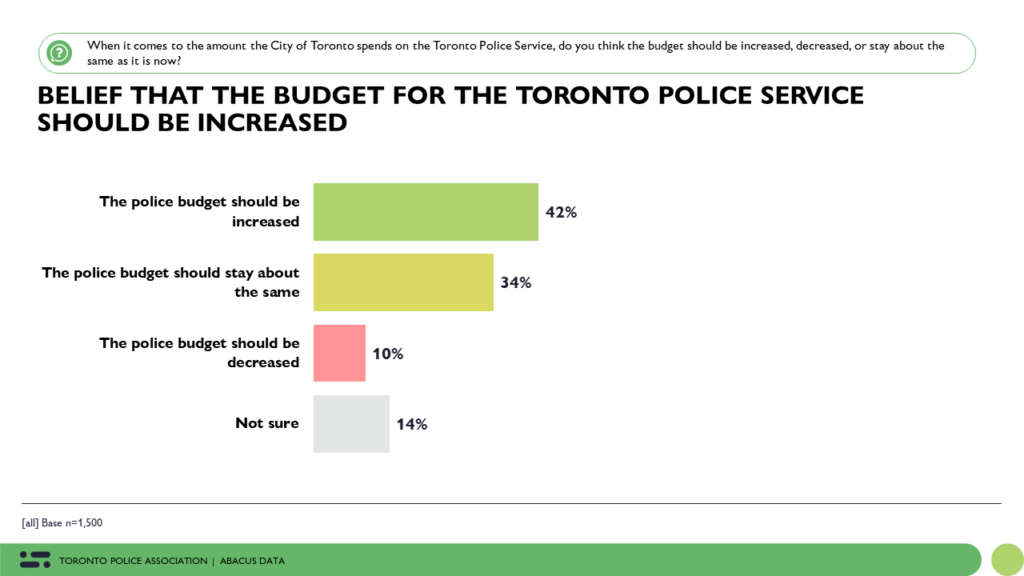
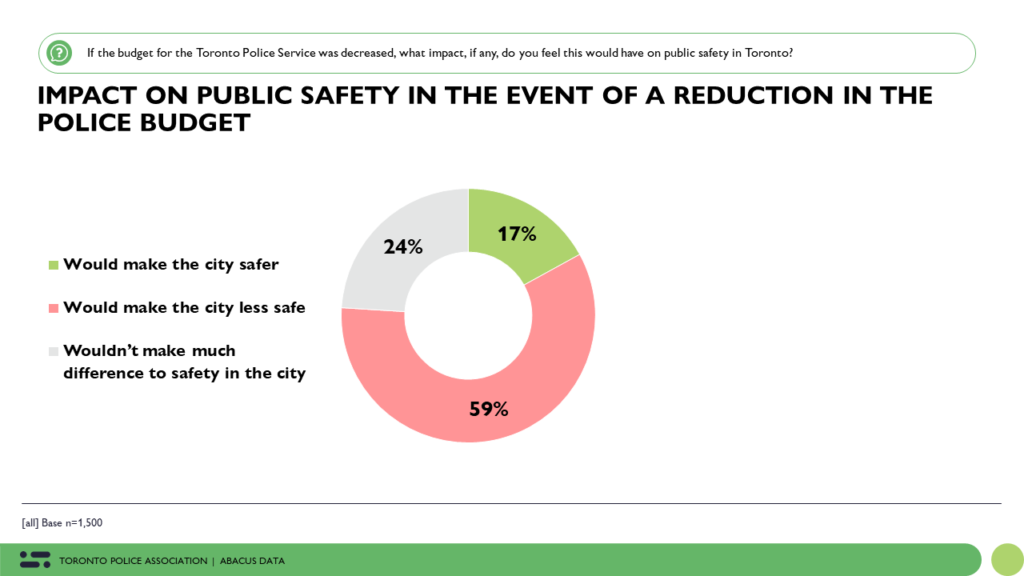
The Upshot
In the face of mounting concerns over pressing issues in Toronto, especially the perceived decline in crime and safety, there is a pressing demand for thorough and effective solutions. As worries about crime escalate, a widespread acknowledgment of the essential role of policing emerges. The majority of Torontonians recognize the crucial contribution of law enforcement to the overall well-being of the city, advocating for an increased presence of front-line officers to bolster urban safety. Furthermore, the desire for heightened police visibility extends not only to neighborhoods but also to the TTC.
Against this backdrop, the perspective on police funding emerges as a critical aspect in navigating the multifaceted challenges facing Toronto. A large majority highlights the importance of maintaining a well-funded and adequately resourced police service. This sentiment is complemented by an acknowledgment that a significant portion believes the Toronto Police Service currently lacks sufficient resources.
In navigating the nuanced landscape of diverse opinions on police resources and funding, it becomes evident that addressing the perceived deterioration of safety necessitates not only community-centric strategies but also a strong commitment to advocating for an adequately funded and responsive police force. These findings collectively underscore the crucial role of funding in ensuring the safety and well-being of the community, emphasizing the imperative to address the challenges posed by the perceived worsening of crime and safety in Toronto.
Methodology
The survey was conducted with 1,500 Torontonian adults from January 4 to 9, 2024. A random sample of panelists were invited to complete the survey from a set of partner panels based on the Lucid exchange platform. These partners are typically double opt-in survey panels, blended to manage out potential skews in the data from a single source.
The margin of error for a comparable probability-based random sample of the same size is +/- 2.53%, 19 times out of 20.
The data were weighted according to census data to ensure that the sample matched Canada’s population according to age, gender, educational attainment, and region.
This survey was paid for by the Toronto Police Association (TPA).
Abacus Data follows the CRIC Public Opinion Research Standards and Disclosure Requirements that can be found here: https://canadianresearchinsightscouncil.ca/standards/
ABOUT ABACUS DATA
We are the only research and strategy firm that helps organizations respond to the disruptive risks and opportunities in a world where demographics and technology are changing more quickly than ever.
We are an innovative, fast-growing public opinion and marketing research consultancy. We use the latest technology, sound science, and deep experience to generate top-flight research-based advice to our clients. We offer global research capacity with a strong focus on customer service, attention to detail, and exceptional value.
We were one of the most accurate pollsters conducting research during the 2021 Canadian election following up on our outstanding record in 2019.
Contact us with any questions.
Find out more about how we can help your organization by downloading our corporate profile and service offering.


